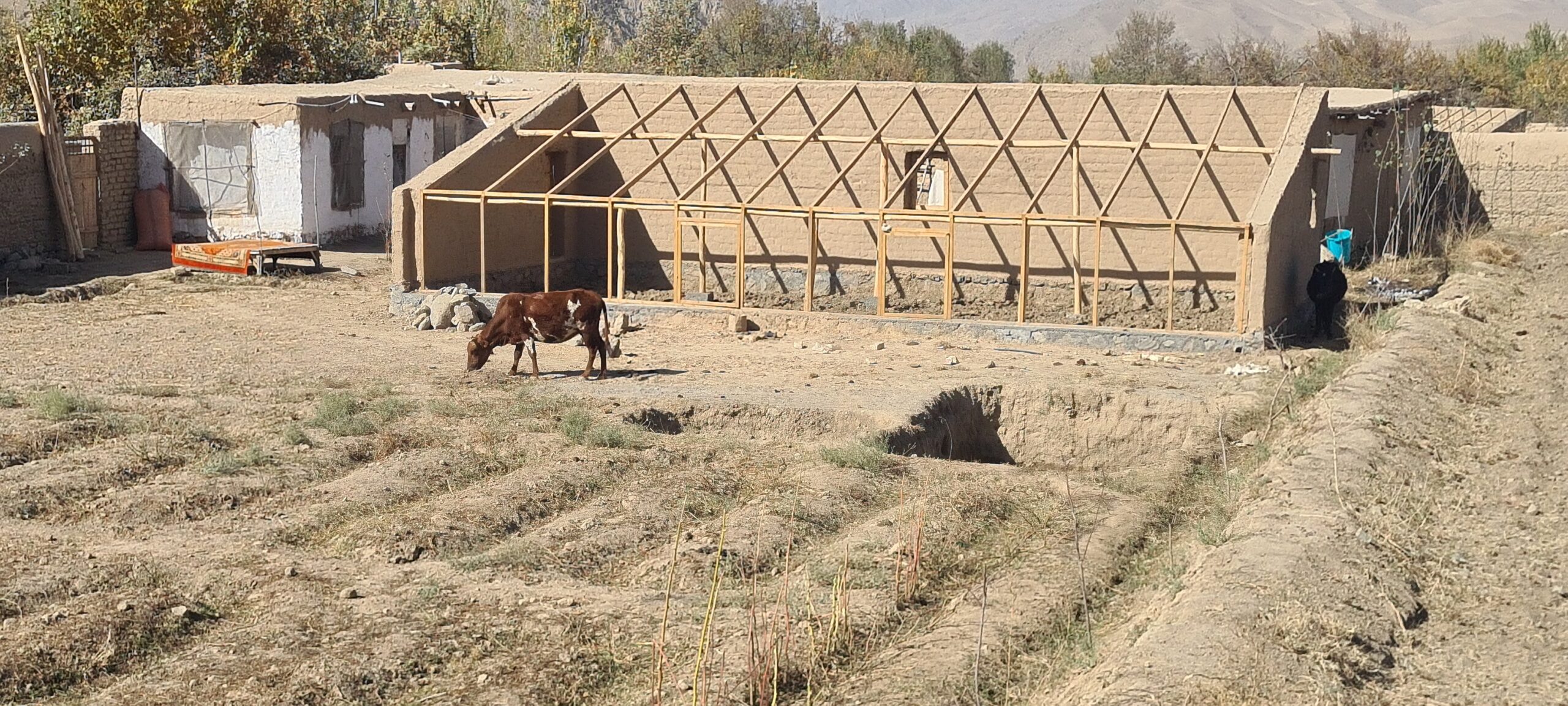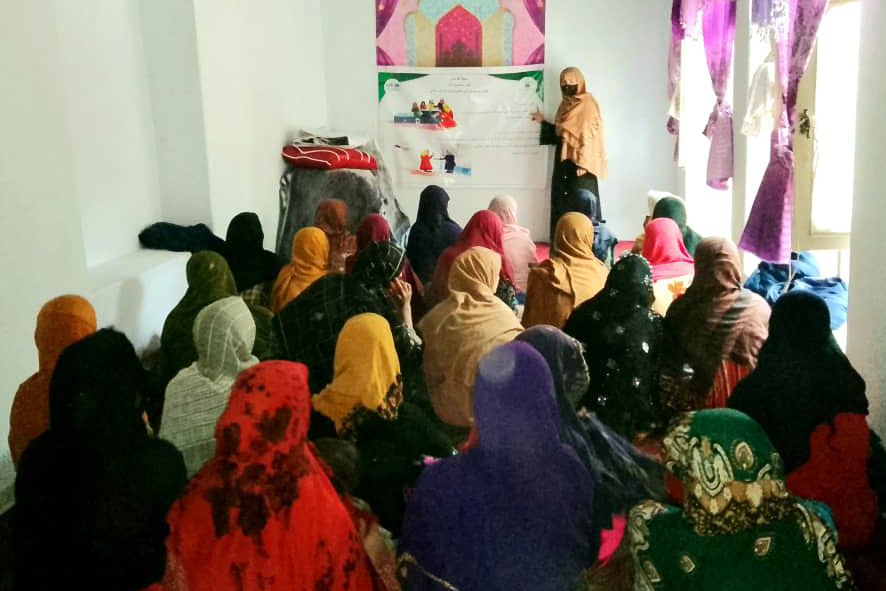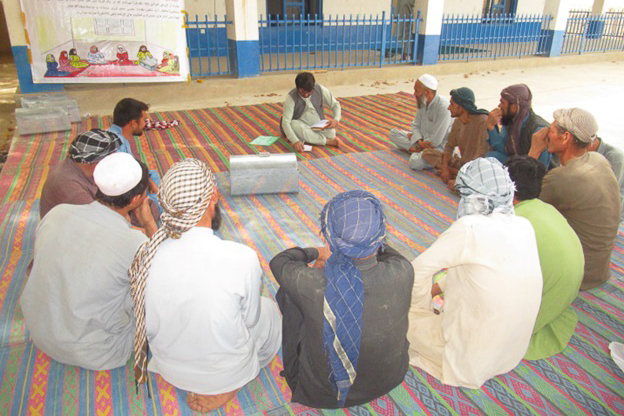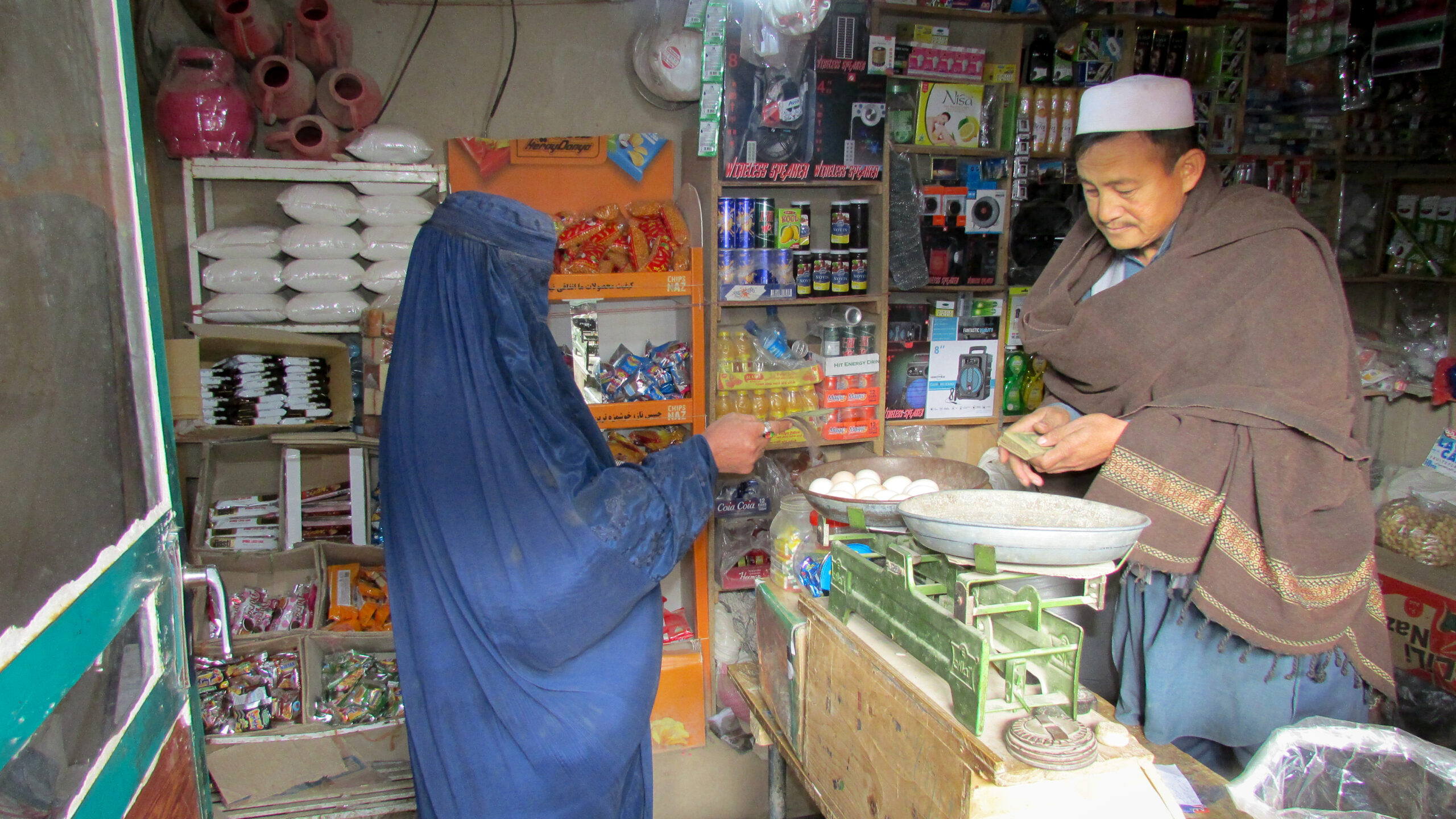Shafiqa* lives in a remote village in Afghanistan’s Takhar province. As a widow, she shoulders the weight of providing for her household of ten. In the past, Shafiqa’s family relied on livestock rearing, but when her husband passed away she lost their business too. “We lost everything,” Shafiqa recounts. “Now, I provide laundry services by washing clothes for my neighbours, but I receive a little money in return, which is insufficient to meet the needs of my household.”
Through an ongoing programme led by the Aga Khan Foundation (AKF) and the Afghanistan Humanitarian Trust Fund (AHTF), Shafiqa has been able to build a new source of income and move forward from a challenging period in her life. She has now established a small chicken farm and is producing eggs to sell to her community and to feed her children.
AHTF is funded by the Kingdom of Saudi Arabia, King Salman Humanitarian Aid And Relief Centre, and facilitated by the Islamic Development Bank and the Organization of Islamic Cooperation.
In Afghanistan, 80% of the population lives in rural areas, and agriculture and livestock rearing form the primary livelihood for rural households. The ongoing humanitarian crisis has thrown existing vulnerabilities into sharper relief; food insecurity has worsened, climate change is impacting agricultural land, and sustainable income-generating opportunities are extremely limited. Millions of Afghans like Shafiqa are living in acute poverty and there is an urgent need to invest in rebuilding livelihoods, with a focus on long-term relief as well as immediate humanitarian support.
Shafiqa’s story is just one example of the ways the programme – called the Sustainable and Inclusive Transformation of Agrarian Economies in Rural Afghanistan (SITARA) – takes a holistic approach to uplifting rural communities in Afghanistan’s Takhar and Kunduz provinces. By intensifying agricultural and livestock productivity, it aims to diversify income sources for smallholder farmers, bolstering food security and economic resilience. Concurrently, the project emphasises sustainable resource management to shield against climate-induced disasters, ensuring a secure environment for future generations.

SITARA is supporting the most vulnerable households by improving access to vital agricultural resources, which contribute to realistic alternative livelihood opportunities. So far, more than 200 backyard poultry farms like Shafiqa’s have been established, as well as a further 80 orchards, and kitchen gardens. Additionally, over 385 people so far have enhanced their vegetable production through the construction of 70 greenhouses, enabling them to yield more produce sustainably.
In response to the acute economic challenges faced by Afghanistan’s rural communities – especially women – AKF is facilitating access to finance for very poor households through community-based savings groups (CBSGs). Additionally, grants for business start-ups offer crucial support, enabling Afghans to initiate or expand their enterprises.


As part of its commitment to inclusive development, SITARA is investing in the future workforce by providing certified vocational training and internship opportunities for youth within vulnerable households. This focus on skill development aims to equip young men and women with the expertise needed to thrive in evolving economic landscapes, ensuring a sustainable path towards self-reliance.
For Shafiqa, the project has fulfilled a longstanding dream of hers – to provide for herself and her family through chicken farming as a sustainable, alternative livelihood. Looking ahead, she’s determined to expand both her production and income. Her chickens have not yet reached full maturity; however, she is already producing 12 to 14 eggs every day from her modest farm.

The income she has generated holds immense significance for her family’s well-being, “I no longer perceive myself as very poor,” Shafiqa says. “I was supported to establish a sustainable source of income to help cover some of my family’s needs, and I am determined to persist in this endeavour.”
*The names of the individuals featured in this story have been changed to protect their identity.
The SITARA programme is funded by the Kingdom of Saudi Arabia’s exceptional contribution, King Salman Humanitarian Aid and Relief Centre, through the Afghanistan Humanitarian Trust Fund, facilitated by The Islamic Development Bank and The Organization of Islamic Cooperation.





